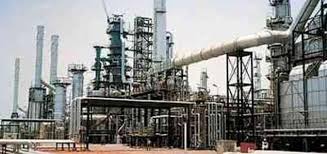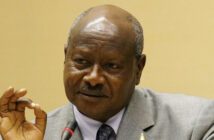The Federal Government said it would soon reduce its import of refined petroleum products as two of its key refineries in Warri and Kaduna are set to bridge the demand gap in local consumption.
Governor of the Central Bank of Nigeria (CBN), Mr. Godwin Emefiele, who dropped the hint at a briefing at the bank’s headquarters shortly after the July Monetary Policy Meeting in Abuja on Friday said the resuscitation of the two refineries followed a series of meetings between the apex bank, the management of the Nigerian National Petroleum Corporation (NNPC) and the Federal Government.
Emefiele said while the Warri Refinery has commenced production, the Kaduna outfit is expected to follow suit shortly. The new plan comes in the wake of the Muhammadu Buhari administration’s reluctance to sustain the fuel subsidy regime, which many believe has enriched few while impoverishing millions of Nigerians.
Although he did not clarify if the CBN really injected fresh capital into the two organizations as it has done in agriculture, industry and aviation sectors, the apex bank boss said the combined capacities of the two firms would likely reduce the estimated 30 million litres of refined products currently being imported into the country.
According to him, the resumption of production by the refineries would reduce the pressure on both government expenditure and also help the CBN strengthen reserves and build the much needed fiscal buffers. “We have met with NNPC and Warri Refinery has begun producing fuel. Kaduna will soon begin production and so we are going to see a drastic reduction in the import of premium motor spirit.”
Emefiele said part of CBN’s mandate was to build reserve, achieve strong exchange rate and maintain stability. He said the MPC in taking its decisions was guided by the need to stimulate growth and development in the economy, pointing out that though some of such decisions may be tough on some stakeholders, they are always taken in the best interest of the economy and the citizens.
The CBN boss also restated the need for Nigerians to cut some of excesses to ensure the revival of the economy. “In the past, we were a leading export of palm produce. Today Nigeria imports almost one million metric tonnes of palm oil. But in the past, we were producing for domestic consumption and for export. And people used the proceeds to send their children to school. We need to return to the basics to begin to create jobs again locally rather than export jobs to other countries.




